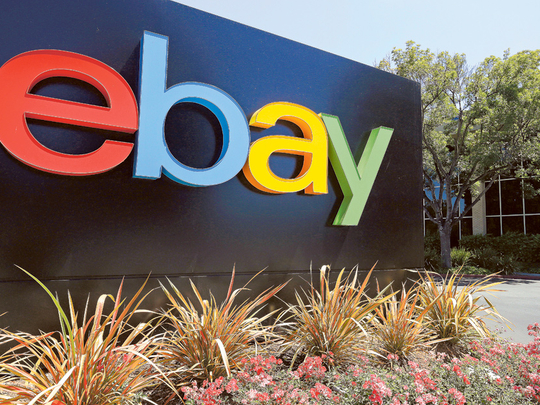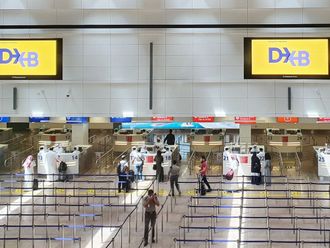
San Francisco: Las Vegas merchant Danni Ackerman sells collectibles on eBay’s online marketplace and gets paid through its PayPal unit. Now that eBay plans to separate those businesses, Ackerman has one reaction: relief.
For too long, she said, eBay has taken its eye off the Web marketplace, introducing changes such as new seller-performance ratings that have detracted from the merchant experience, As eBay prepares to spin off PayPal by the end of 2015, Ackerman said she hopes the split will return focus to merchants.
“They’re going to have to stand on their own, and we’re expecting some big changes,” said Ackerman, 48, who has been selling on the site since 1998. Marketplace chief Devin Wenig, who will lead the stand-alone business, will bring a “fresh, community-minded” approach, she said.
Ackerman is one of more than half a dozen eBay sellers interviewed by Bloomberg News who said they welcome the impending split of the San Jose, Calif.-based company’s marketplace business and PayPal unit. Those opinions matter because eBay’s 25 million merchants globally, who transact everything from Halloween costumes to garden gnomes, make up the backbone of a business that generated $8.28 billion last year. Their loyalty will help determine whether eBay will be able to thrive without PayPal, its faster-growing division.
eBay Chief Executive Officer John Donahoe said on Sept. 30 he was dividing the company into two after “a thorough strategic review with our board shows that keeping eBay and PayPal together beyond 2015 clearly becomes less advantageous to each business strategically and competitively.”
eBay said it has taken pains to reassure buyers and sellers that little will change with a split. It posted a note to merchants and customers on the day it announced the spin-off, and later emailed the same message to sellers.
“You have our commitment to make sure people like you remain at the heart of everything we do,” eBay said in the email.
Since then, eBay has received little feedback from buyers and sellers, said Ryan Moore, a company spokesman.
Scot Wingo, CEO of ChannelAdvisor, which works with merchants to increase sales, said he has heard little grousing from merchants about eBay’s split and said sellers want eBay to focus more on the marketplace to rev up the business’s growth rates.
“Amazon is growing 25 per cent-ish and eBay is growing 10 per cent-ish,” Wingo said in an interview. “Everyone would like to see eBay double down.”
eBay sellers like Ackerman said they are particularly eager for a stand-alone marketplace to address issues that they said have left them with bloated inventories and poor seller ratings. In August, eBay replaced its method of assigning sellers four scores in different customer-service categories with one “defect rate,” which measures a merchant based on timely shipments and whether the item arrived as described and return rates.
Vivian Elba, an eBay merchant based in Simsbury, Conn., who sells designer clothing and accessories online, lost her coveted top-rated seller status after the changes went into effect. She said she’s looking forward to an independent marketplace and how it may review and change the seller ratings.
“I really don’t like the implication that I or my business practices are defective,” said Elba, who has been selling on eBay since 1999. “I don’t feel the process has been thoroughly vetted, and it’s causing great angst among sellers.”
eBay, which doesn’t disclose how many top-rated sellers it has, said it projected about one third of those merchants would have to improve customer service to maintain the distinction.
“In order to help our sellers keep up with today’s consumer expectations, we have changed the way we evaluate the performance of our sellers, and have provided them with resources to improve their businesses on eBay,” said Lynda Talgo, eBay’s vice president of global managed marketplace.
Nick Martin, founder of The Pros Closet in Denver, an eBay store that sells used bicycle parts, said he is confident the corporate split won’t present any challenges. His company’s annual sales are in the several million-dollar range, all through eBay with PayPal handling the payments.
Martin’s company made changes to meet eBay’s higher standards for sellers, including posting more photographs of bike parts so buyers can thoroughly inspect them before purchasing, he said. The Pros Closet also added customer-service staff.
“I’m confident it’s going to proceed business as usual,” he said.
— Washington Post












